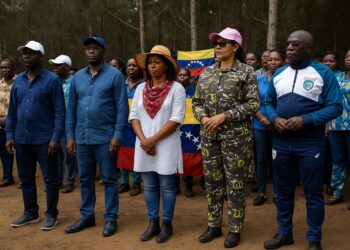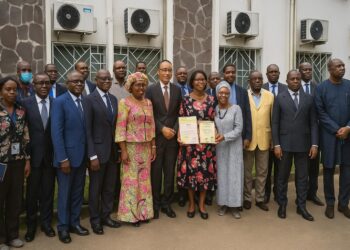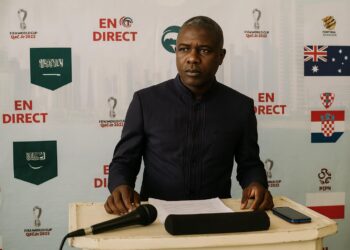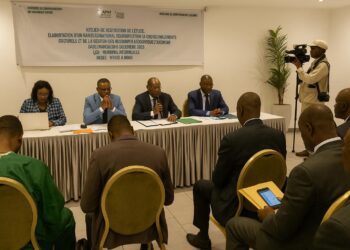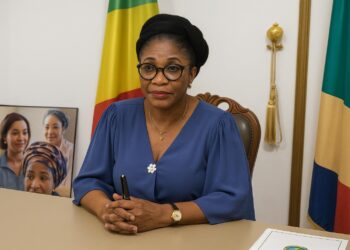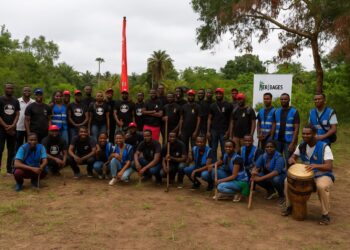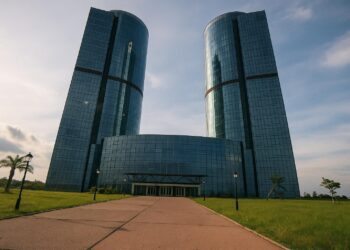Brazzaville’s diplomatic stage and the promise of the social economy
For a capital sometimes caricatured as a quiet backwater on the Congo River, Brazzaville has mastered the art of hosting high-level gatherings that recalibrate narratives about the Republic of Congo. The announcement that the second African Forum on the Social and Solidarity Economy, Fora’ess, will take place here from 20 to 24 January 2026 demonstrates deliberate positioning by the Congolese authorities. In the words of Malick Diop, president of the forum, the social economy offers “a pragmatic answer to the twin imperatives of resilience and inclusive development” in Africa. The choice of venue is equally instructive: Congo is seeking to move the conversation about its economic future beyond hydrocarbons toward cooperative finance, mutual insurance and community-owned enterprises that align with the African Union’s Agenda 2063 and the United Nations’ Sustainable Development Goals.
Preparatory work: from concept to actionable roadmap
The preparatory meetings, which concluded on 10 July 2025, were far from ceremonial. Representatives of cooperatives, mutual societies, academic institutions and international agencies converged to fine-tune everything from the forum’s thematic architecture to the logistical minutiae. A local organising committee was constituted under the supervision of the Ministry of the Promotion of Women and the Economy of the Informal Sector, led by Minister Inès Nefer Ingani Voumbo-Yalo. According to officials present, sub-themes will range from impact-investing norms to the formalisation of informal cross-border trade, aligning with recent recommendations by the International Labour Organization on decent work in the informal economy (ILO 2024).
A continental context shaped by shocks and opportunities
The resurgence of interest in the social economy is hardly accidental. Africa experienced a contraction of 1.7 percent in real GDP in 2020 before rebounding unevenly across regions (AfDB 2024). Against that backdrop, cooperatives in agriculture and micro-finance weathered commodity price volatility more effectively than some listed corporations, thanks to their member-centric governance. UNDP studies indicate that social enterprises now employ over 13 million Africans and could create a further 20 million jobs by 2030 if regulatory bottlenecks are eased (UNDP 2023). Fora’ess arrives, therefore, at a moment when governments are re-evaluating orthodox growth models in favour of structures that embed social returns within financial returns.
Congo’s domestic ambitions and the gender dividend
For Brazzaville, the forum dovetails with its National Development Plan 2022-2026, which earmarks a dedicated window for cooperative financing in agriculture and digital services. Minister Ingani Voumbo-Yalo argues that social economy structures “constitute a reservoir of sustainable jobs for youth and women, and a mechanism to stitch together the social fabric after successive external shocks”. Observers inside the Ministry of Planning underline that 67 percent of Congo’s informal workforce is female; formalising their enterprises through mutual insurance schemes could boost household resilience while broadening the tax base. The presence of regional development banks at Fora’ess is expected to translate such aspirations into blended-finance commitments.
Global partners and cautious optimism from investors
International actors read the Brazzaville rendez-vous as both a signaling device and a marketplace. The Agence Française de Développement confirmed exploratory talks about a €40 million line of credit to Congolese credit unions, contingent on governance benchmarks. Similarly, the African Development Bank’s vice-president for regional integration hinted that a new Facility for Solidarity Finance could be announced during Fora’ess. Private-sector interest is likewise stirring: a Nairobi-based impact fund disclosed that it is mapping opportunities in community-owned renewable-energy mini-grids along the Congo-Oubangui corridor. While traditional equity investors remain circumspect, concessional lenders see a chance to de-risk ventures that marry modest returns with measurable social impact.
Balancing expectations with pragmatic next steps
Sceptics recall that the inaugural edition of Fora’ess in Dakar produced eloquent communiqués yet struggled to institutionalise follow-up mechanisms. Organisers in Brazzaville are therefore crafting a post-forum monitoring framework that will publish semi-annual scorecards on national commitments, mirroring the African Peer Review Mechanism. The Congolese government has committed to depositing a draft social-economy bill before parliament in early 2026 to codify cooperative statutes in line with OHADA corporate law. Should these measures materialise, Brazzaville could set a precedent for peers from Abidjan to Windhoek, demonstrating how the social and solidarity economy may evolve from rallying-cry to regulated economic pillar.
An incremental yet consequential pivot
Ultimately, the 2026 edition of Fora’ess is less about grand pronouncements than about embedding incremental change within Africa’s policy DNA. For Congo-Brazzaville, the event offers diplomatic capital and a platform to reposition itself as a catalyst for cooperative capitalism in Central Africa. For the continent, it is an opportunity to mainstream business models that temper profit with purpose, building buffers against external shocks while advancing the Pan-African vision of shared prosperity. Success will hinge on meticulous follow-through, but the very act of hosting signals a strategic determination to explore economic paradigms where growth, equity and sustainability cohabit rather than collide.

































